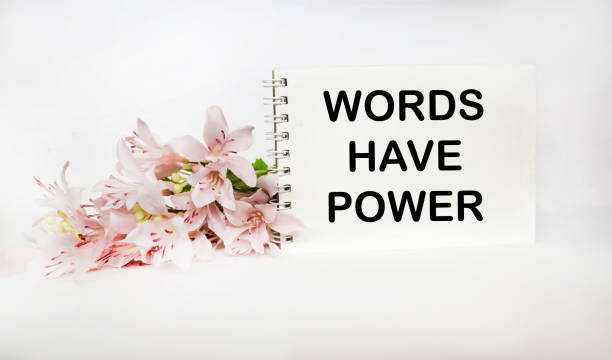How Fictional Dialogue Respected the Human Spirit
Fiction isn’t pretty much memories—it’s approximately people. Real emotions, deep struggles, and unspoken hopes stay between the traces. One of the maximum effective tools in literature is talk. When used with care, it will become extra than communication. It becomes a replicate of the human spirit.
Great authors understand this properly. They form words that honor what it method to be human. Through fictional communicate, they allow characters express braveness, worry, love, justice, and every now and then, forgiveness. These voices remind us of who we are, what we stand for, and the way we must deal with every other.
In this newsletter, we’ll discover how dialogue in fiction has consistently upheld the honor of human beings—throughout genres, cultures, and time.
The Power of Dialogue in Literature
At its core, speak reflects mind, intentions, and beliefs. Unlike narration, it’s personal. It comes without delay from the individual, and that’s why it subjects. When a fictional man or woman speaks, they’re often saying what many actual people feel however cannot explicit.
Dialogue permits:
Emotional honesty: It brings internal feelings out into the open.
Moral readability: It offers characters a manner to stand for what’s right.
Human connection: It indicates us empathy, expertise, and forgiveness.
This is why fictional talk, while written with reason, will become a effective celebration of the human spirit.
Atticus Finch: Quiet Strength and Moral Integrity
In Harper Lee’s To Kill a Mockingbird, the attorney Atticus Finch is one of literature’s most respected ethical voices. His conversations along with his kids, Scout and Jem, are gentle but complete of meaning.
He says, “You in no way really understand someone until you don’t forget matters from his point of view… until you climb into his skin and stroll round in it.” This simple line is deeply respectful. It teaches empathy—not thru a lesson, but through a loving father’s words.
Atticus’s communicate respects people, regardless of their heritage. He speaks to truth and justice, even when the world around him is packed with hate. He speaks not to affect, but to connect. And that’s why his voice stays with readers for all time.
Elizabeth Bennet and Mr. Darcy: Learning to Listen
In Pride and Prejudice, Jane Austen creates a international wherein an awful lot of the conflict and boom happens thru communique. The communicate between Elizabeth Bennet and Mr. Darcy movements from false impression to mutual respect.
At first, their words mirror pleasure and judgment. But over time, they learn how to pay attention. Elizabeth’s famous rejection of Darcy’s first concept is formidable and honest: “From the very beginning, from the first moment I can also almost say, of my acquaintance with you, your manners… inspired me with the fullest notion of your vanity, your conceit…”
Yet later, Darcy’s softened tone and Elizabeth’s willingness to rethink display emotional adulthood. Their words grow more considerate. Through dialogue, both characters end up greater conscious, compassionate, and sort.
This transformation doesn’t just build romance—it honors human boom. It respects the capacity to admit fault and to forgive.
Huck and Jim: Friendship Beyond Barriers
Mark Twain’s The Adventures of Huckleberry Finn includes a number of the most meaningful dialogues in American literature. Huck and Jim—an uneducated white boy and an escaped Black slave—form a deep bond through their conversations on the river.
Huck’s moral warfare is shown on this moment: “All right, then, I’ll go to hell.” He says this after deciding to help Jim, understanding society will condemn him.
This line is brief, but effective. It suggests Huck’s loyalty to Jim. It’s a second of insurrection, sure, however additionally of profound moral clarity. Huck’s phrases prove that love and respect can rise above hatred and fear.
Their dialogue is full of humor, ache, and discovery. It’s thru talking, arguing, and dreaming together that Huck and Jim grow—and monitor the soul of actual friendship.
Anne Frank: Words That Live On
In The Diary of a Young Girl, Anne Frank’s words aren’t fictional. Yet her voice in literature includes the same emotional reality as any amazing novel.
Anne wrote: “In spite of everything, I nevertheless believe that humans are surely suitable at coronary heart.”
This one line is frequently quoted, but it comes from pages packed with worry, wish, and longing. Her speak with herself, with her own family, and thru her diary with the sector, displays the electricity of a person who refused to lose religion in humanity.
Even in hiding, even in worry, her words uplift. Her spirit comes alive via every access. That’s the type of debate that respects no longer handiest her own dignity—however also the dignity of everyone struggling to continue to exist.
Dumbledore’s Wisdom: Gentle but Firm
In J.K. Rowling’s Harry Potter series, Albus Dumbledore regularly plays the function of a moral guide. His phrases to Harry are calm, kind, and complete of information.
One of his maximum well-known traces is: “It is our choices, Harry, that show what we honestly are, some distance more than our skills.”
Dumbledore doesn’t yell. He doesn’t pontificate. He simply gives truth—wrapped in compassion. His communicate is proof that strength doesn’t want to be loud. It may be smooth, however still shake the sector.
These conversations assist Harry face darkness. They remind him (and us) that goodness comes from choice, and that every person—regardless of how small—can pick out the light.
Dialogue as a Tool for Healing
Great fictional talk doesn’t simply highlight pain. It also brings healing. In books wherein characters go through trauma, their phrases come to be part of their healing.
Take The Kite Runner via Khaled Hosseini. When Amir finally speaks approximately his beyond with Hassan, he starts offevolved to heal. His confession, apology, and his choice to make matters proper display emotional braveness.
Hosseini’s characters don’t use grand speeches. Their words are often simple. But they bring the weight of regret, love, and longing. And thru speak, they move in the direction of forgiveness.
Fictional communicate like this suggests how talking truth—even damaged fact—is a way to rebuild the human spirit.
Why This Matters to Readers
So why does all this count?
Because readers carry those voices with them. When characters speak with kindness, braveness, or honesty, they set examples. They shape how we recognize empathy, conflict, and reconciliation.
Dialogue in fiction:
Teaches us how to talk to every other
Challenges us to pay attention higher
Helps us recognize truth, even in silence
When characters honor every different with respectful talk, readers learn how to do the identical. That’s the deep and lasting value of fictional conversations.
Conclusion: Voices That Uplift
From court docket fathers to teenage girls in hiding, from wizards to runaways, fictional characters have spoken with voices that lifted the human soul. Through their words, authors have commemorated what’s fine in humans—the ability to select compassion, truth, and love.
In each sentence spoken, in every argument or mild word, fictional talk can both wound or heal. But the high-quality authors constantly select to heal.
Their characters don’t just speak. They reach out. And that’s why their dialogue remains in our hearts long after the final web page.





